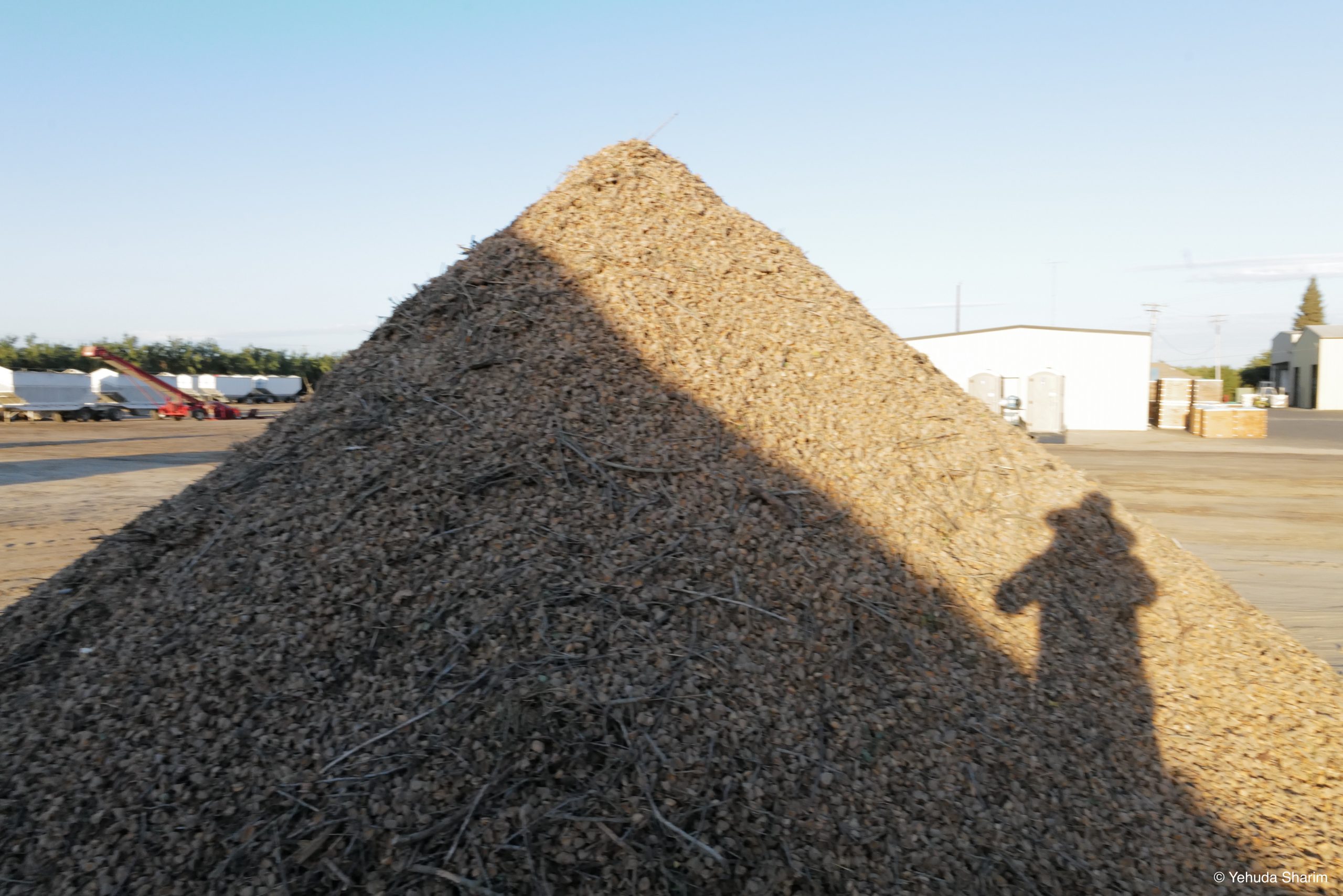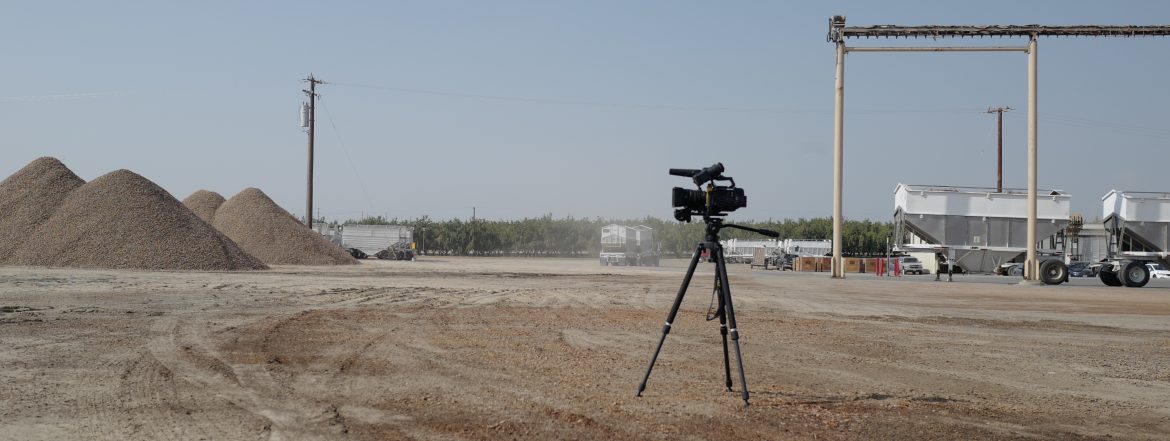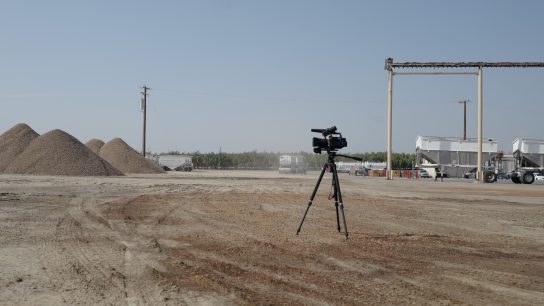Experiments in Freedom: An Interview with Yehuda Sharim
by
Reflecting on his UCHRI-supported feature film, Experiments in Freedom, Yehuda Sharim (UC Merced) offers a deeply personal response to a set of questions from UCHRI Research Grants Program Director, Sara Černe, for a Foundry series highlighting the work of the Institute’s recent grantees and the methods, unorthodox approaches, and challenges they have employed and encountered. This exchange took place in Summer 2023.
“I filmed the world with my heart, and then my heart broke. What do you film when your heart breaks? No: Is there a way to film without a broken heart?”
Filming as Breathing
Tell us about your project and how it brings together your various interests in film, photography, and poetry.
I grew up without cameras. I didn’t think that a camera was an option.
Everyone went to work and came home at night exhausted. I watched them. I kept my eyes open. I was afraid of what I was watching.
The TV was a companion to exhaustion, a late-night escape from daily exploitation, fireworks fired in cells. The image stood there staring at us, our war, and our daily crimes.
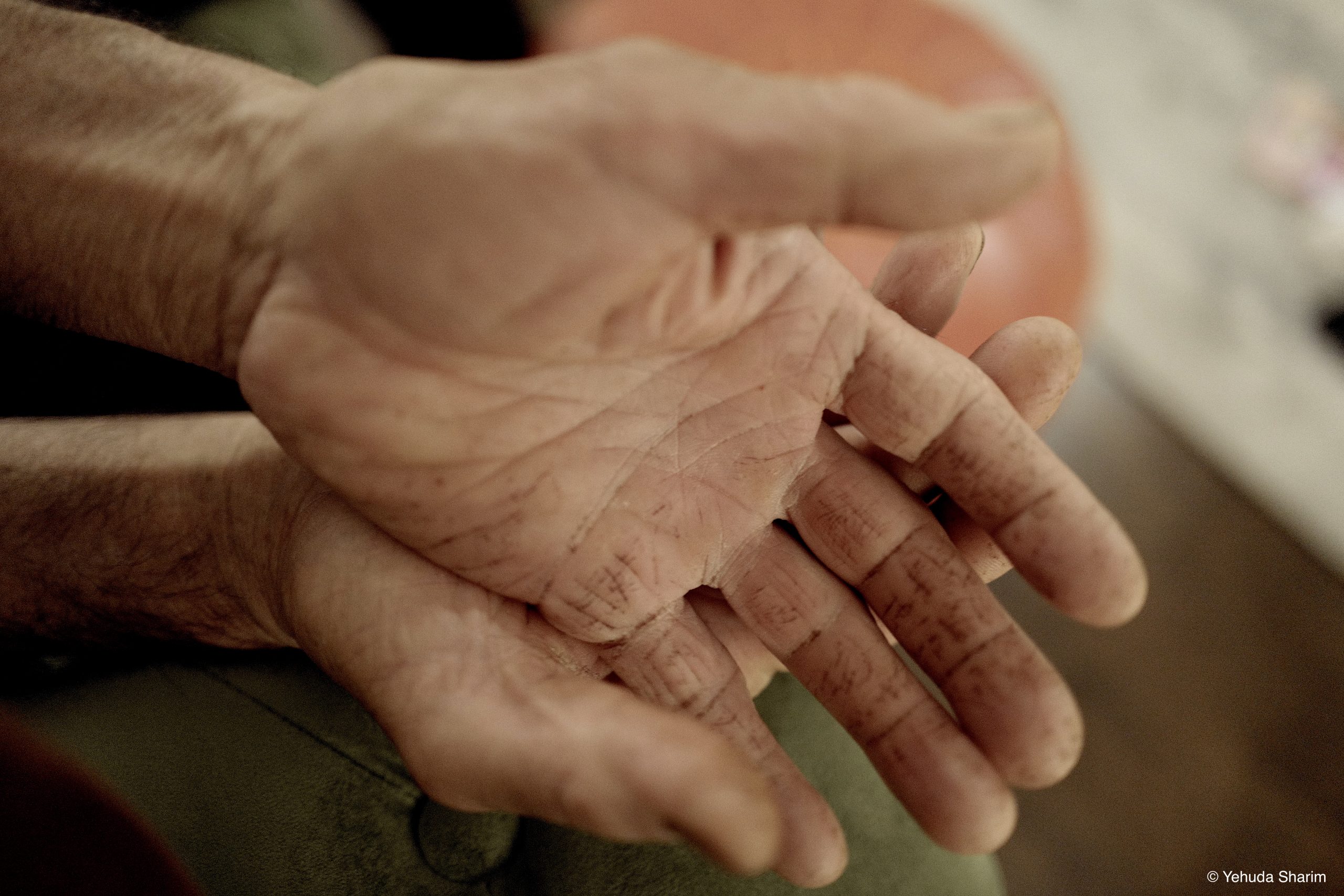
I began hating my eyes because of all that they witnessed.
Most of our neighbors excommunicated or ignored us. Others insisted that I would become a criminal. And I did. I didn’t understand how and why my parents deserved to become unseen.
I filmed the world with my heart, and then my heart broke. What do you film when your heart breaks? No: Is there a way to film without a broken heart?
I filmed my father’s exhaustion as he returned from long hours in the strawberry fields.
I filmed the nights when we all ran into the fields to protect the strawberries from the coming rain.
I filmed the soil that covered the bills tucked into his pant pockets.
I filmed the days I stole money to ensure I could buy a book.
I filmed as breathing. I had to find a way to breathe.
I filmed my mother’s warnings (she spoke with anger and no eyes): you must study, you must not become like your father. Otherwise, you will end up illiterate. Illiterate like. Like Him. Him unable to tell his story. Him. Lost in the fields, all the fields. Him. Invisible in the fields of life.
I filmed the local bookstore manager when she declared one day, “only for you, take as many books that you want and pay me only $1 per book.”
I filmed the workers at the restaurant who arrived to work beaten, because of the soldiers at the checkpoint.
I filmed my mother’s joy every time she began watching her films. It was her daily ritual. She waited for the night and all the lies of the day to settle, so she could finally begin imagining other, better, kinder worlds. She will tell me about her travels to other worlds in the morning. My mother traveled without passports into worlds where she could finally be and become.
I filmed sacrifices unseen, daily sweat that remained hidden from newspapers.
I filmed days when silence became the only voice.
I filmed war as it took over living rooms, beds, cups of tea, plants, hands, and hearts. I filmed a country afraid of loving, choosing war as a way of being. Choosing death. I filmed days turning into fists.
I filmed my grandmother, Mamu, forcing me to tell her something “sweet.” What is life if we can not share sweet words? What is life without kindness and care? Or forgiveness?
I was forced into uniforms. I almost died. They say that I did die.
I stopped talking.
I filmed through silence.
I filmed myself staring at the only mirror in that cell: shaved, battered, horrified to notice that the war of dictators was now becoming my war.
I filmed friends getting married, having their hearts attacked, and getting mortgages for living in homes they would despise.
I filmed Jean Genet asking the interviewer: How come you have all the questions, and I have none?
I filmed my dreams turning into birds. I got used to living with birds always leaving me, refusing to be held, just like the dream I had of being a writer in Hebrew, and then all the words ran away. I chased them into the streets, but the roads refused to reveal themselves. I had to leave.
I filmed a room. I was there. Alone. I heard voices. It was my father who approached me from behind. Did you see the guy who lived here? I was trying to tell him that it is me, I am that guy, yes, I am that guy, your son. But he kept asking me, where is that guy? His plane is about to leave soon (why is he always leaving us?) Did you see that guy? Minutes before I left for the airport, I would sit with my father, and he would tell me that he didn’t mean to forget, but the world escaped him. Suddenly, there is nothing to be found—no words, no names.
Come to think about it, I have filmed so many days that have lost their words and names.
The day I received my first camera, all my films were ready.
Refusal
As you may know, UCHRI is particularly invested in exploring themes of Refuge and Its Refusals. In your view, how does the dialectic between refuge and refusal play out in the Central Valley in terms of immigration, labor, and the environment?
The poetic in cinema is always a space of refusal against language and its limitations, and to see that, one must go beyond language and image.
It is a refusal that is, at heart, a hand clenching, refusing to overlook the complexity of narratives and moments outside mainstream consumption.
We should all be part of that refusal.
Our classes should teach us about the art of refusing or, perhaps more importantly, our need not to be ashamed of our refusal.
To engage with the poetic is to surrender to movement. An endless flow. The river of all rivers. Direction and rhythm of light. Light and water. Not to be held. Not to be captured. Like music. Like the music we all are and the beat that we call need. And like honey, I will pour with spoons into your cup of tea when your throat bothers you on a cold night.
The refusal also calls for a revolution, a search for a new order, craving tenderness, devouring justice as the only religion possible, and imagining a place for us to meet.
I want to remove the refusal from the page and live the refusal, walk the refusal, and encompass and embody a state of transformation.
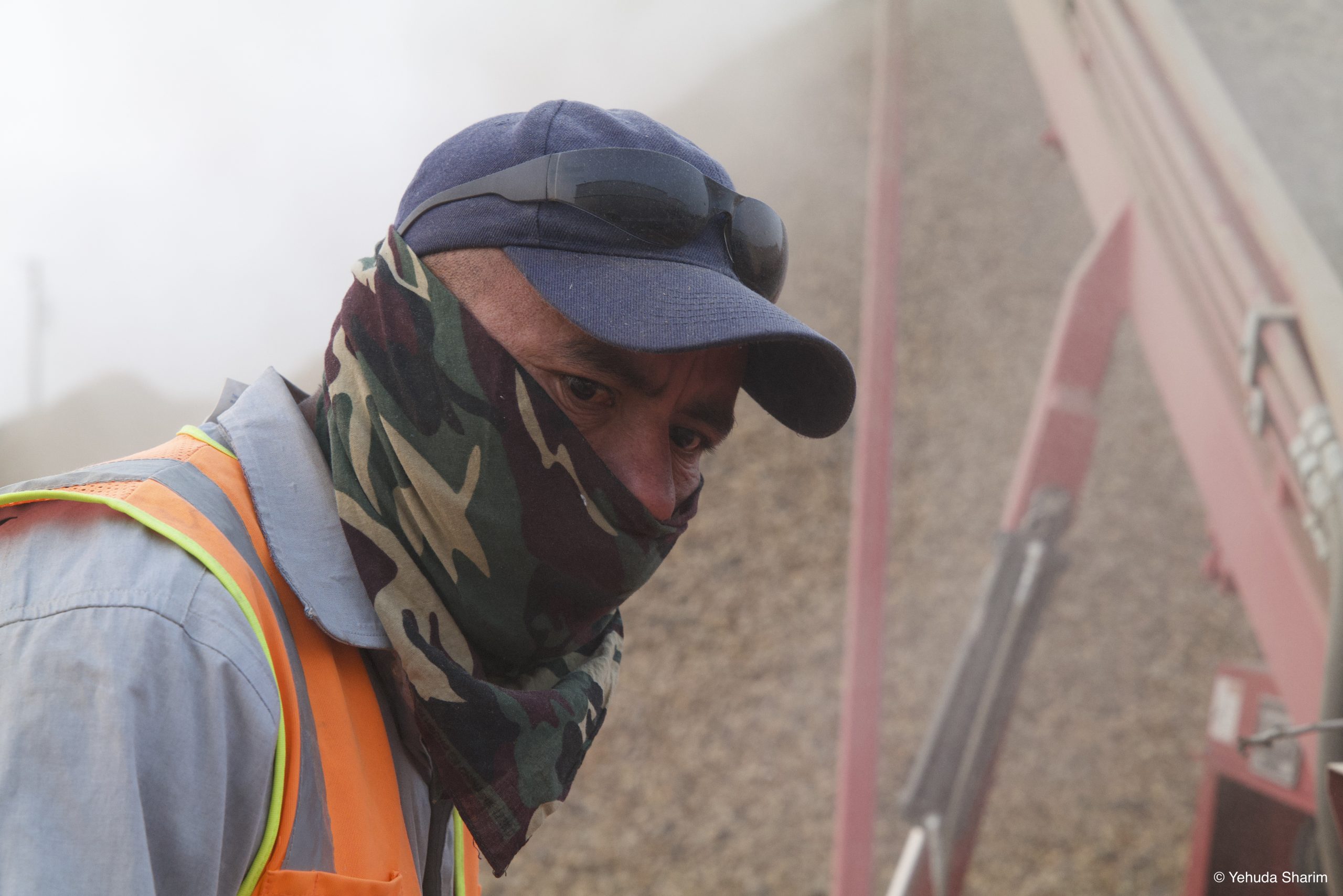
I sit with Infinite Allah, and we talk about how he got incarcerated at fourteen, tried as an adult, spent forty years in prison, and now here he is, free for now. His eyes are glowing. Infinite tells me that the best years are ahead of him. “They still surveil me with an ankle bracelet, but I have so much to say and do,” he shares with determination. I learned from Infinite about the refusal to give up on hope, the refusal to be defeated. And when we sit in his meditation room, next to images of Malcolm X and many African masks, I think that my refusal could not be shaped without Infinite, or Hassan, Margaret, Hana, Abbas, Hussein, Shaqil, Dream, Ali, and so many more—there is no my refusal without one another. The refusal is collective, and it is part of a communal effort. It makes a community as it expands our notion of togetherness. We devour transgressions, radical, daily.
Ana
I’d love to hear about your process of recruiting and working with the people you feature in your work. How does your relationship with your subjects influence your representational strategies and experimentation with narrative form?
I met Ana in winter.
Ana said she waited to meet me for more than 30 years.
It was in an old church where we first met. They voted on whether they should be filmed, and she was the one who stood up and said, we must do it. We must tell our stories. We must not be afraid of ourselves. Then she laughed: Hollywood, here I come.
Our next meeting was at Ana’s home.
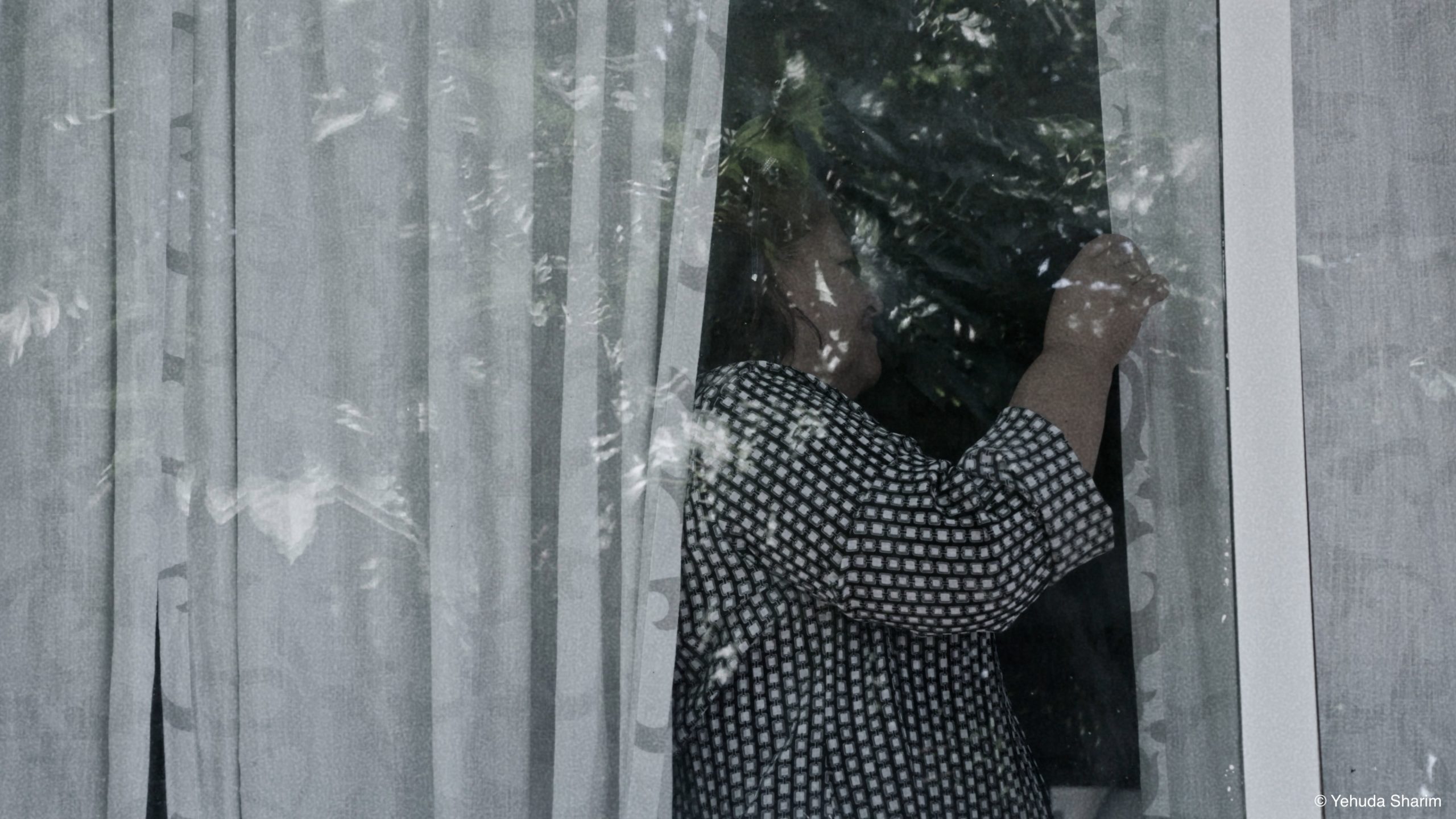
I set up the camera, and Ana began talking about living and dreaming without papers. We began reading poetry together. Ana taught me how to pray. We prayed with the camera. We went together into the almond orchards and talked with the trees. We visited all the flea markets. We made films together. Ana taught me how to film prayers that are always beyond words.
Ana kept talking about how “without papers,” she could not return to her beloved Mexico and attend her mother’s burial. Father. Brothers. Uncles. As we kept filming, her brother-in-law died. We dedicated another prayer to him.
When Ana’s request for citizenship was denied—she got nervous during the interview that she had waited for all her life—we turned it into another prayer.
We filmed another prayer when Ana’s son, Marcos, left high school and started working in the almonds fields.
Every time we prayed together, Ana asked for decency and honesty, requests that the camera could not keep. I kept filming. The more I filmed, I despised the camera, all cameras, surveillance cameras, CNN cameras, cameras of the most pathetic kind, cameras of lies, body cameras, cameras without eyes.
Later, when I was about to give up all my cameras, it was her, Ana, who demanded a new prayer to be filmed. She knew Lorena and Micaela, and when Emmanuel was born, she was there with us to welcome him to this world. For six months, she stayed with us, bringing him clothes, and then told me at El Trevino, over fish tacos and endless tears: Because of you, I started writing poetry; because of you, I can turn my life into a poem, and poems can cross borders, and poems are the world.
Ana got her green card on the last day of filming.
The Poetic as an Act of Compassion
What do you see as the main impact of these experiments in freedom, how has grant funding helped you achieve it, and what kind of afterlife can you imagine for the project?
Films have a clear ending. Prayers don’t.
Prayers are acts that are centered in one’s body. It is important for me to insist on talking about cinema and filmmaking as a practice that puts the body at the center of filmmaking and being filmed.
The camera doesn’t promise much.
The meeting with the camera is a space that goes beyond documentation and beyond what one sees. To go into such spaces, I develop relationships, friendships, and spaces where we can be and become.
More than one film is needed for the kind of work that I do, which is based on building relationships. Relationships are a matter of consistency, standing, and being there for one another. The colonial Western understanding of film taught us that a world/argument could be revealed, even finalized, by one act, image, or film.
To go beyond revelation.
To go beyond the illusion of success.
To go beyond discoveries.
To go beyond failures.
To go beyond WAITING for approvals, grants, and affirmations (am I good? Am I good enough?)
To go beyond impact.
To go beyond film festivals.
To go beyond self-gratification and dollars.
Then, when I can let go of all those masks—the film director, the one who failed, the one who made it, the one who owned it, the one who discovered it—I can get closer to the mountain and even begin climbing.
And climbing is always about small steps. Finding the time to rest. Reminding myself that others have climbed this mountain and have lessons to share. Knowing when to pause and watch the sunrise. Learning the art of thinking less. Appreciating every step and the journey. Resting more. Seeing your father falling, holding him, and then another small step. They started another war and then another war. The time is in the mountain.
The aim is a revolution, and a revolution can not depend on one time acts or popcorn. Get the point?
The Poetic Image
In your newest online exhibition, A Map of Light, you explore the (in)visibility continuum in rural California—as one of your subjects puts it, “they threw darkness on us because they don’t want to see us.” How do your photographs and poetry relate to the night as well as to light?
All that we refuse to see always continues watching us.
“A Map of Light” started immediately after filming my latest film in a local Merced restaurant. I was walking there a day after the end of the filming. The alley outside the restaurant attracted me even during the filming period.
What our culture identifies as the periphery is the frontier of our society. The space of the night is where we reveal who we are. And we reveal ourselves through poetry. Through poetry, I am thinking about a way to reclaim language—either the order of symbols, words, and images—
What is the image or the camera without the poetic?
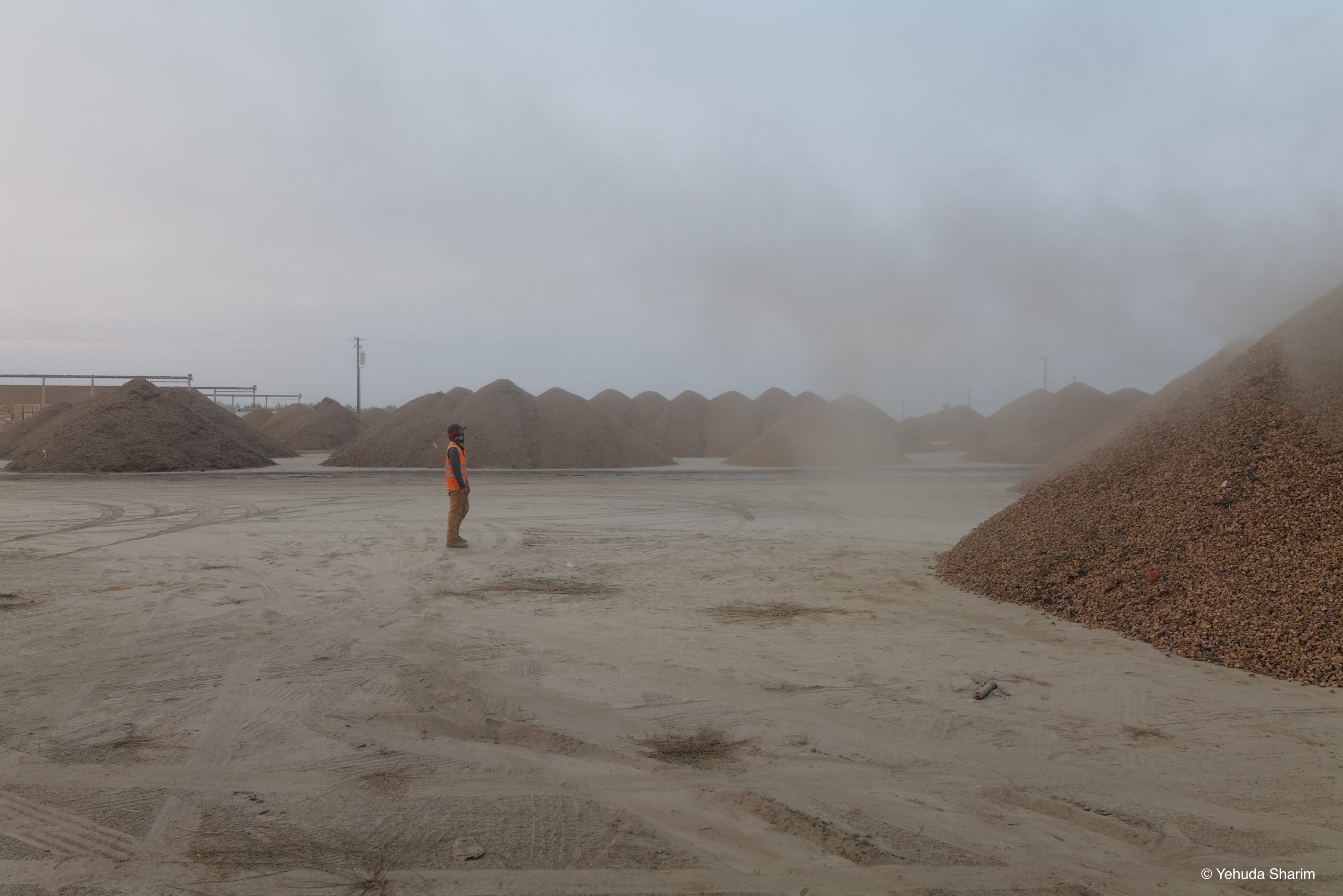
The poetic practice demands patience and stamina, just like the night; to see, one has to remain, slow down, stay, become vulnerable, and then one can locate liberation.
The poetic practice starts with one’s body and mind. I hold the camera in my hands, but it is not my eyes that direct my gaze. I pressed “record,” but all my eyes had been collecting notes and images before I carried the camera.
I sit with the night, the same way that I sit with families of incarcerated youth in Virginia or families of refugees from Iran, and we know that words are just masks, and matters are more complex than the narrative we are sharing with one another. Through compassion, we can LISTEN > DO YOU HEAR ME, meaning, do you hear me beyond my words, do you feel my words and silence, do you see me? Beyond words. Beyond what is being heard and seen. Beyond heartache and pain. We are more than our pain, more than our words, more than labels like “incarcerated” or “refugees.” The tragedy starts when we forget or are forced to forget that we are more—and the night is more than darkness; stay here. You cannot touch darkness, but you can stay in it. Remain. Remain in heartache. Remain in pain. Remain in confusion. Do not suppress the night, do not ignore the night and run into artificial light.
When I return to my studio every day, it is like returning to night. There are days when I want to run away. It scares me. But I began enjoying that funk of the unexpected; it is my door to freedom. I stay there, and then it opens. I don’t need to push (the days when I force myself, the days when the door remains locked), but stay. I let go. I write. I visit the nearby roses. It is not discipline but passion that calls me back into the night. A passion that possesses the poetic, the determination to take control of language, see/feel through words a new land, new horizons, each other, our shared destinies, our shared hurt, our breaths and sighs, our wars, our guilt and need for love.
The poetic image is an image that inherently refuses to be or act as a product. It is cinema that refuses to be cinema, cinema that hates cinema and its colonial history, cinema that is self-aware and mindful but not limited by the cynical past and present abuse of the image, from Instagram to surveillance cameras across endless borders, from Arizona to Gaza. The poetic image must be part of cinema revolutionaries, from Charles Burnett, Haile Gerima, Chantal Ackerman, and many more.
I began looking into the night as an experiment. I was returning to the filming location where we just finished filming a full feature, and I stayed in that alley where the workers of nearby restaurants would have a smoke during their shifts. I walked in the alleys. When I tried to film, my camera refused to film the night. The night was underexposed. Not enough light.
I was in deep pain, and I looked for light. I looked for light, but I kept being in the dark. Whenever I thought it was all over, I encountered more darkness; the world appeared locked, closed, and all the doors shut. I remained in the darkness; the darkness was all I had, my only friend, my only light, a space for me to see who I am.
We have been distracted.
We were not able to see.
We have spoken slander.
We have lied.
We thought that we could own the world.
We turned anger into our days.
We have spoken falsehood.
We surrendered to fear.
We have become fearful.
We betrayed our hearts.
We forgot our sense of purpose.
We didn’t know how to forgive ourselves.
We didn’t know how to forgive our loved ones.
We have gone astray.
We thought it was too late.
We got stuck in our pain.
We stopped believing in love.
We bought guns.
We sold each other.
We woke up to daily terror.
We are guilty.
We believed that we are better than our sons and daughters.
We tried to hurt one another.
We got more than twenty pairs of shoes.
We allowed a few criminals to take over our homes.
We didn’t know how to look into the skies.
We have oppressed.
We ignored pain.
We took selfies.
We wanted more.
We looked for a new car.
We got stuck.
We abandoned our children—hold the screen, watch, and shut up.
We are pathetic.
We have done wrong.
We voted WAR.
We choked our brothers and sisters.
We refused to face the fires.
We poured wine into our demons.
We didn’t know how to rest with our hearts.
We have robbed.
We stole.
We thought that voting was all that mattered.
We allowed criminals to lead us into war.
We lied to ourselves and then to the world.
We have counseled evil.
We forgot.
We played music but lost the ability to listen.
We forgot.
We ate a lot of broccoli to feel better.
We forgot.
We walked in circles; all is broken, hopeless, lost.
We forgot.
We were on our way home.
We wanted to find a home in this body.
We covered our empty hearts with flags.
We were proud.
We ask for forgiveness.
We are guilty.
We lied.
We have naturalized hurt and unnecessary suffering.
We are hungry for love and mercy.
We are hunger.
